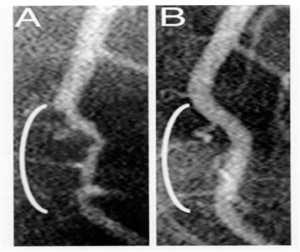Should We All Be Vegetarians?
- Jun
- 30
- Posted by Jennifer Rooke, MD
- Posted in Blog
- 66
“Should we all be Vegetarian?” This was the title of an “invited commentary” that accompanied the recent article in the Journal of the American Medical Association (JAMA-Internal Medicine) which showed that people on any type of “vegetarian” diet lived longer than non-vegetarians. The author of the commentary subtly answered the question in the first paragraph by recounting his brief experience as a lacto-ovo-vegetarian in the 1970s while he was a young and idealistic graduate student. He said that he went back to eating meat in medical school because there was a lack of vegetarian options in hospital cafeterias (some might have seen that as all the more reason to continue). The real problem, not mentioned in the commentary, was probably the lack of useful nutrition education in medical school.
In a word, the commentator’s answer to the question was no, and he did not support clinical advice to adopt a cholesterol-free vegetarian/plant-based diet. In his words “dietary advice should be given to patients based on their own dietary history and preferences, their motivation to change their diet and their clinical circumstances.” This sounds reasonable if you don’t know the scientific evidence which clearly shows that conditions such as atherosclerosis, hypertension, heart attacks, strokes, cancer and diabetes can be prevented, treated and reversed by a whole-food, cholesterol-free vegetarian diet. If you know the scientific evidence then his advice sounds more like malpractice.
If you have life-threatening pneumonia, your doctor will not ask you if you want antibiotics, you will get a prescription for antibiotics. If you are sick enough you will be admitted to a hospital and started on IV antibiotics. You have the right to refuse treatment but if you consent, the antibiotic you get will not be based on your personal preference, it will be based on the scientific evidence of what works for the infection that you have. If you have hypertension you are at increased risk of death from a heart attack or a stroke. Your health care provider will give you a prescription for anti-hypertensive medication based on current scientific evidence, not your personal preference or motivation to take medications, why shouldn’t you also get dietary advice that is based on current scientific evidence?

A. Clogged Arteries. B. Arteries unclogged after 32 weeks on a cholesterol-free vegetarian diet. If a drug could do this all health care providers would be prescribing it. Why aren’t they all prescribing a cholesterol-free vegetarian diet for their patients with clogged arteries?
I agree that one observational study in JAMA is not definitive, but this study is actually just the latest in a mounting body of scientific evidence supporting the use of a cholesterol-free plant-based diet in the treatment of chronic diseases such as hypertension. The main cause of hypertension is atherosclerosis which clogs arteries, blocks blood flow and increases pressure in the arteries. We know that a cholesterol-free vegetarian diet will reverse atherosclerosis and we have the pictures to prove it.
Most health care professionals have seen the before and after angiograms from Dr. Caldwell Esselstyn those who have seen the Forks over Knives documentary are aware of this research. These angiograms clearly demonstrate the effect of a cholesterol-free vegetarian diet. These results have been duplicated in subsequent studies and the scientific evidence is clear. The lifetime risk of hypertension is 90%, and cardiovascular disease is the most common cause of death in the US. If a cholesterol-free vegetarian diet can reverse cardiovascular disease, then the question is not, should we all be vegetarians? The relevant question is why aren’t all health care providers advising patients to adopt a cholesterol-free vegetarian diet as part of standard medical care?
One reason that health care providers give for not advising patients to make evidenced-based dietary changes is that patients won’t follow this advice. This does not stop them from prescribing medications; 75% of patients do not take medications as prescribed. Over 2/3 of patients stop taking cholesterol-lowering statin medications within the same year that they were prescribed. The tragedy here is that patients are not taking prescribed medications and they are not getting evidenced-based dietary advice that would treat the underlying causes of their chronic medical conditions.
On the positive side, there are health care providers who are addressing these concerns. The American College of Lifestyle Medicine is a professional organization for health care providers who promote lifestyle interventions that treat the underlying causes of disease and reduce or eliminate the need for medications. I was recently pleased to see that another group of health care providers had organized the Inaugural North American Plant-based Nutrition Healthcare Conference around the theme of “Shifting to a Sustainable Health “Care” System.” This trend will not only improve patient health outcomes but also the satisfaction that providers will feel from improving the overall quality of their patient’s lives.
Dr. Jennifer Rooke is the Medical Director of Advanced Lifestyle Medicine and author of the soon to be published Lifestyle Interventions to Prevent and Reverse Hypertension. Lifestyle Medicine is a new approach to health care that uses lifestyle interventions such as evidenced-based nutrition, physical activity and stress management to treat and prevent disease. Dr. Rooke has practiced medicine for over 27 years and is board certified in both Public Health/Preventive Medicine and Occupational Medicine. Dr. Rooke is a fellow of both the American College of Occupational and Environmental Medicine, and the American College of Preventive Medicine. Dr. Rooke serves as an Adjunct Clinical Assistant Professor in the Department of Community Health and Preventive Medicine at Morehouse School of Medicine and in the Department of Family and Preventive Medicine at Emory University. Visit her website www.advancedlifestylemedicine.com
B-12 Supplement
Heart Attack Risk Calculator
BMI Calculator
ALM on Facebook
Error :
- A feed could not be found at `http://www.facebook.com/feeds/page.php?id=1416121451938478&format=rss20`; the status code is `404` and content-type is `text/html; charset="utf-8"`
RSS Feed currently unavailable.



Leave a Reply